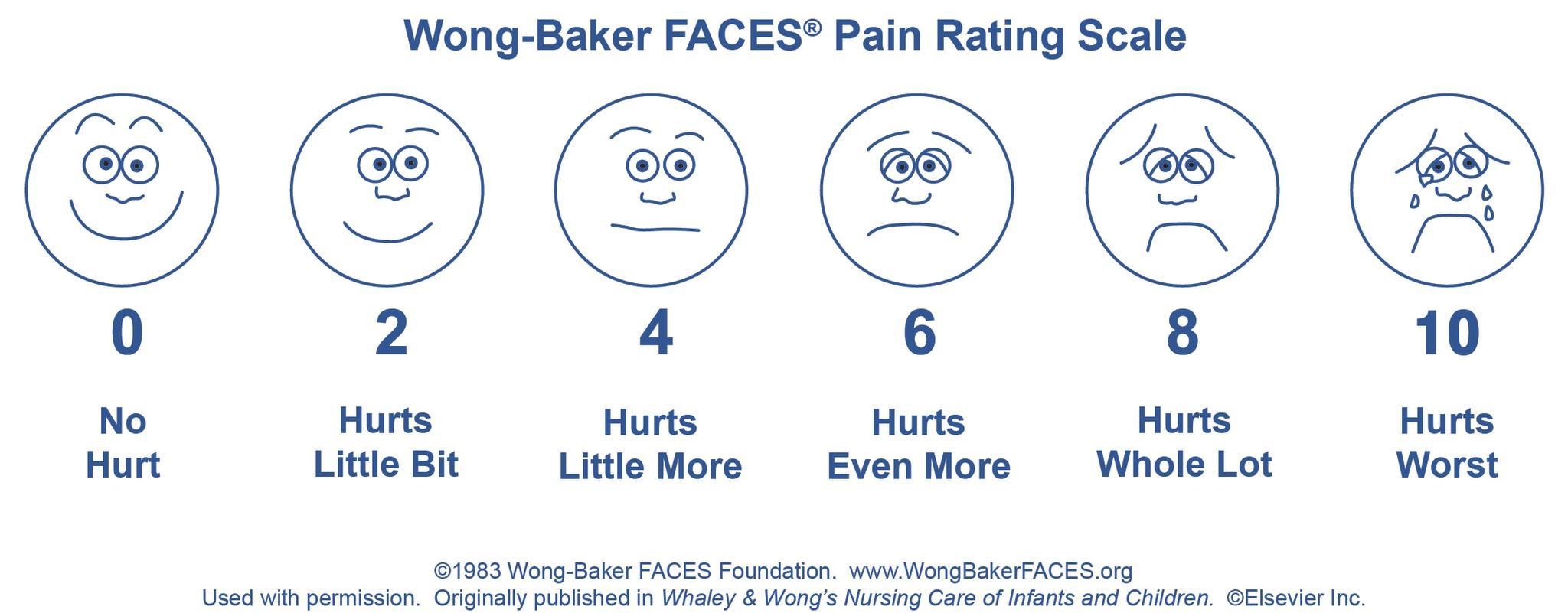
For two years I battled an autoimmune disease. At one point, I was so weak that I couldn’t lift a coffee mug. When my doctor asked my pain level on a scale of 1-10, I consistently labeled it a 4.
Then I discovered the Wong-Baker FACES Pain Rating Scale (pictured below). “I’ve been telling you my pain is a 4,” I reported, “but my ‘chart face’ says I’m really a 6 or 7.” On my own, I had assessed my pain as moderate, but from the pain assessment chart, I realized it was severe.

Until I found this chart, I couldn’t accurately evaluate my physical pain. Likewise, without a reference, we can’t evaluate our childhood pain. Before counseling, I would have rated my emotional wounds as a 4—moderate. With a similar reference chart, however, I would have recognized my leftover pain was a 6 or higher—severe.
Today, my childhood wounds have mostly healed. I can gratefully say I’m usually only a 2 on the pain chart, but I still have residual symptoms that make me vulnerable to flare-ups. All of us who have ever been broken boys will experience symptom flare-ups from time to time because, to some degree, we all live with the residual pain of what happened to us. We have a limp.
A limp is a good metaphor for what’s left after healing occurs. Just as a badly crushed leg will heal but leave a physical limp, a healed soul will leave an emotional limp. In everyday encounters, it often shows up as a tendency to overreact to people and situations that remind us of old wounds. In the past, this overreaction happened subconsciously, but the healing process brings new awareness. The truth is you can live successfully—even joyfully—with your limp. Even if you have it for the rest of your life.
How would you describe your symptom flare-ups? Do you get frustrated too quickly, or disproportionately angry when you feel disrespected? Do you have mood swings? Or perhaps an exaggerated need to be loved, appear successful, or feel important?
My main symptom is a tendency to see life through the lens of abandonment—characteristic #1 of broken boys from the list of nine I share in the book. I’m tempted to think people don’t care about me, even though I know that’s a lie. But abandonment is part of my story, and the residual effects render me susceptible to flare-ups. By God’s grace and the Holy Spirit’s power, I rarely act on that wound. But when I forget to put on my spiritual glasses to correct for abandonment, that’s the first thing I see. I’m also oversensitive (characteristic #2) and deal with leftover insecurity (characteristic #5).
Some people might say I’m damaged goods; I would reply like the apostle Paul. Three times he asked God to take away something painful, and God told him, “My grace is sufficient for you, for my power is made perfect in weakness” (see 2 Corinthians 12:8-10).
I pray that God will mend every trace of your brokenness. But if you plead and God doesn’t mend you completely, may that passage be your constant companion as it is mine, and may you—even with a limp—walk joyfully.